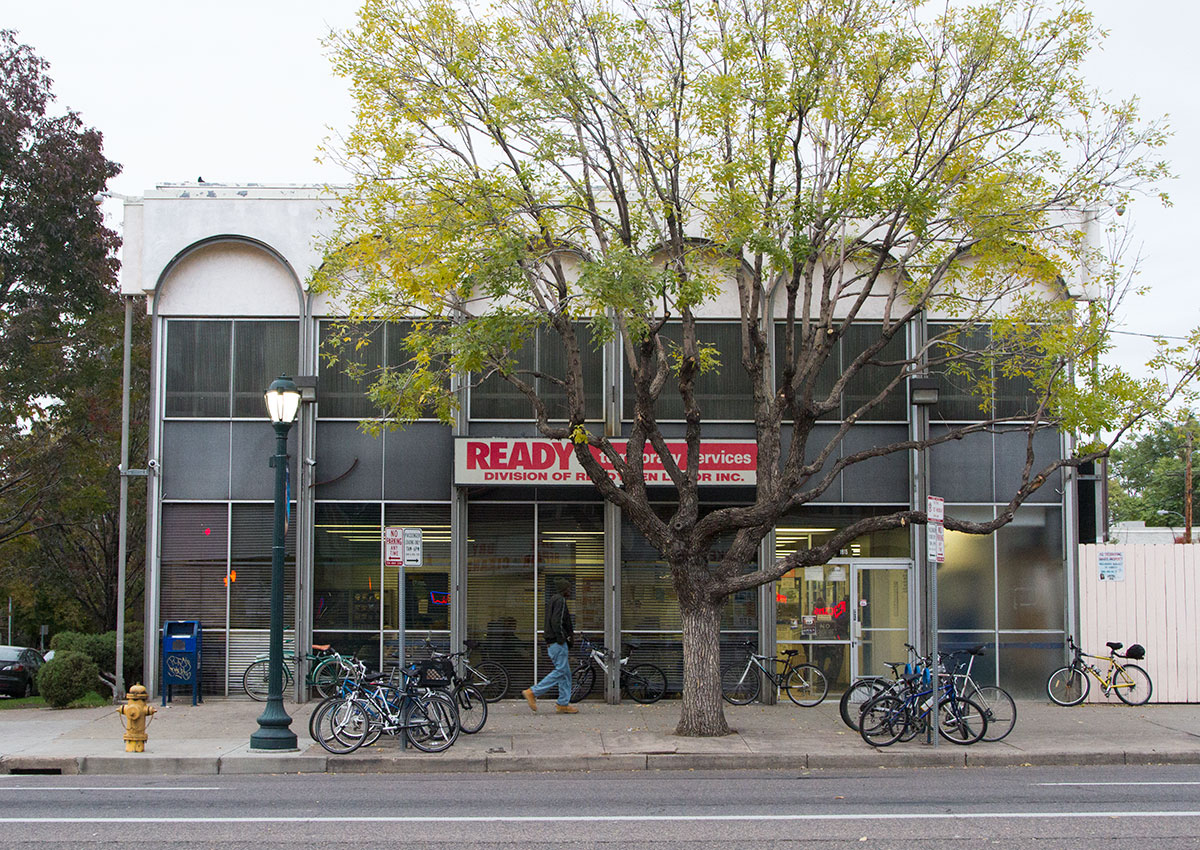The Local newsletter is your free, daily guide to life in Colorado. For locals, by locals.
A line of people forms outside the East Colfax Avenue location of Ready Temporary Services at 4 a.m. on a Tuesday morning in May. The day-labor contracting business will open in about 30 minutes, just like it does every weekday. “Here comes the big guy,” an employee says when a navy blue Chevrolet Suburban pulls into the parking lot. Joe Hannifin’s rangy, six-foot-three-inch frame saunters through the front door. The operations manager doesn’t offer much of a hello but spends a few moments studying Ready’s work orders. Immediately, he sees a problem: 7 a.m. is going to be tricky because several jobs are scattered around town.
Hannifin’s father opened the business in 1967 at the intersection of 16th and California streets for men and women looking for employers whose checks didn’t bounce. Nowadays, Ready has moved several times and grown to deliver some 300 people to dozens of job sites each day. Hannifin sends dishwashers to Volunteers of America to clean trays for Meals on Wheels, workers to the Golden Triangle to build a new hotel, and delivery people to a liquor distributor for 10- to 12-hour shifts.

Hannifin started helping out at Ready when he was 10 and has spent most of his life managing temporary help. It can be frustrating work: People don’t show up when they say they will, some applicants smell of alcohol, and today Hannifin has to warn one man not to threaten his boss. “This isn’t a normal job,” he says. “Certain behaviors here wouldn’t be accepted at other jobs.”
And while Hannifin helps some 4,000 employees each year—many of them homeless—collect paychecks, he is also profiting from their labor. Ready charges clients $15 to $18 an hour per employee and pays workers $9 to $12, pocketing the markup (after overhead). Because of that business model, some have questioned the Hannifins’ motivations. And, yes, Ready provides a living for much of the Hannifin clan: Hannifin’s brother, Mike, is the sales manager, and his sister, Jennifer Neuhalfen, is the controller. But Hannifin is searching for answers, too. He sometimes chases drug dealers and pimps from the curb outside the office. Then there is the day-to-day business of helping Denver’s poorest find work, an effort that can leave him feeling exhausted. “You meet so many good people,” he says while talking about housing, before his voice catches for a moment. “I try to have solutions for problems. I don’t have one for this.”








